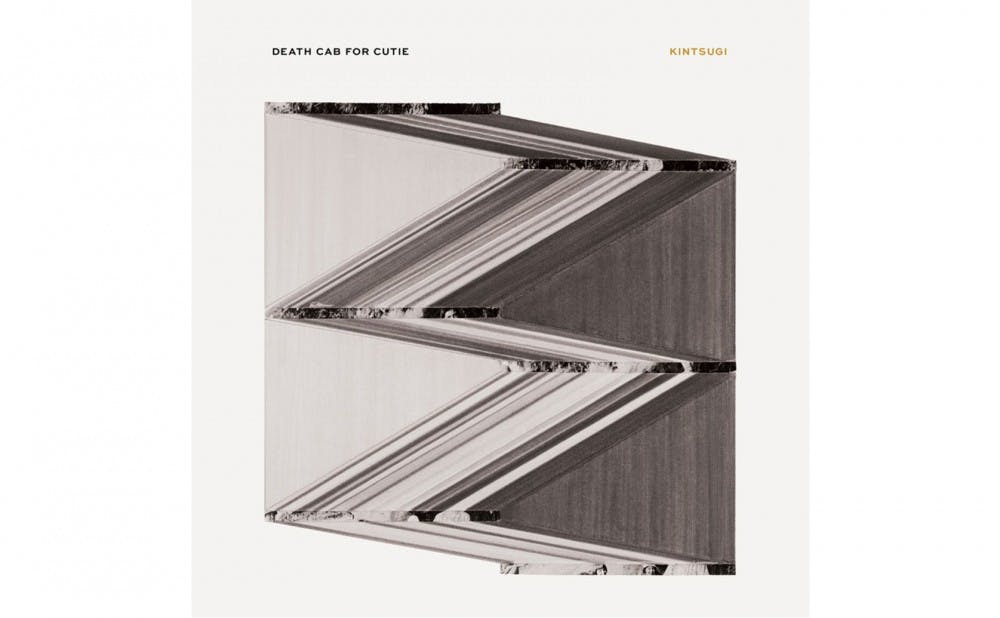Every album ever written is either about love found or love lost. That’s a given. But Death Cab for Cutie's latest? Kintsugi is about both and neither at the same time. It’s about waiting for a phone call, about counting down hours until she’s home, about wondering what distance will change and what it won’t.
Ben Gibbard, singer-songwriter of Death Cab for Cutie, is fluent in self-deprecation. He is battered and bruised and usually wants you to know it. Though he consistently claims there is a distance between the personified character in his songs and himself, Gibbard’s insights are eerily honest. This album reflects that—It is a quiet one, simple in melodious structure, and it forces us to acknowledge the lyrics in the forefront.
The album rings true of Death Cab’s more comfortable sounds, maybe, but it’s also a fresh telling of acceptance. Instead of blaming his flaws for the mishaps of his romance, the character of Kintsugi throws up his hands. He surrenders to circumstance, and to the greyness of love hanging by strings across oceans.
With “No Room in Frame” Death Cab begins the album with a medium tempo, slowly riffed song about being in the way of your loved one—or at least worrying that you are. Its breakdown resembles many of the beginnings of their songs from their most recent studio album Codes and Keys, with the clean electric guitar and steady, soft bass. The chorus lyrics, “Was I in your way when the cameras turned to face you?” could reflect the very literal instances when Gibbard’s presence was usurped by photographers and press conferences during his marriage to actress Zooey Deschanel, but it makes a bolder metaphorical statement.
“Black Sun” is a very similar structure to that of “You Are a Tourist” from Codes and Keys. It’s mainly two repeating minor chords with a continual reverberation that evokes bitterness, working harmoniously with the dark, visceral lyrics, “whiskey,” “black sun,” “cruel.”
“Little Wanderer” is a song mostly about physical distance between two people and about the curt, simple conversations that distance seems to enforce. It references the very modern phenomenon of Skyping and texting photos in a long-distance relationship. That being said, the song paints more of a feeling of trying to mentally create the space that your loved one is in when you are far away—of wanting so much to be where they are, or trying to artificially construct a togetherness. And that’s what the song feels like, in the end, artificial. Effortful and difficult, but cruel in both those ways.
Rounding out the album with “Binary Sea,” which hums of piano and Gibbard’s accented pre-choral “ooooh”s, the songs prove complimentary to each other. Whereas Codes and Keys demonstrated Death Cab’s experiment with heavier, more electronically-driven sound, Kintsugi is a return to their previous sway. It’s acceptance, it’s cracks, it’s moving forward and changing.
In his chronicle of a love lost, Gibbard isn’t passing judgment. He don’t claim failure in trying to stretch love a little further than originally intended. He isn’t demanding that love must be lost between two people far away from each other. He is relaying to us the very complicated feeling of having to thin yourself out. Of your heart being in two places at once and, by consequence, sometimes weaker on both fronts.
Get The Chronicle straight to your inbox
Signup for our weekly newsletter. Cancel at any time.

